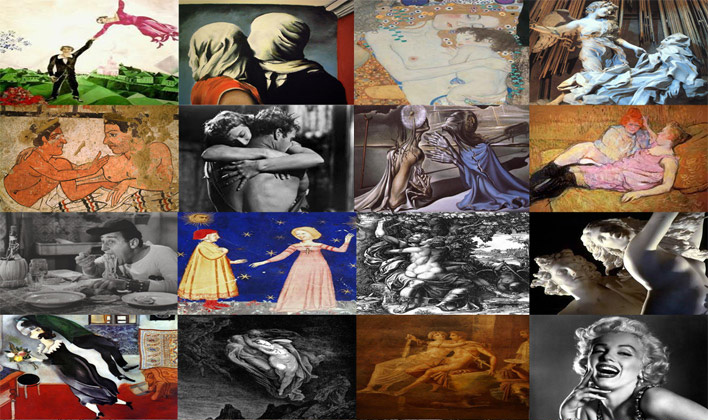Travelling into the unconscious and performing desire in E.T.A. Hoffmann's and W. Beckford's 'night' works
Abstract
Far from being a mere ‘genre’ with typical motifs, the ‘fantastic’ is rather a literary ‘way’ of expressing, indirectly and allusively, almost seductively and dream-like, a personal confrontation with the ineffable inexplicableness of the ‘imaginary’. He who trespasses its threshold finds himself inevitably swallowed up in a whirl progressively winding up and attracting him towards the unknown world of the confrontation between the Self and the Other. As a consequence, he feels “in dire suspense”, because the bordering experience of the ‘fantastic-uncanny’ leaves his reasonable paradigms at ‘checkmate’. Hoffmann and Beckford’s works explore the spaces of the unconscious and the “rhetoric of the inexpressible” in a mirrored way. By entering the ‘dimidiate’, subversive world of the ‘fantastic-uncanny’, they begin their journey within the Self, which, proves to be a skilled performance of desire. The comparative analysis of Die Elixiere des Teufels and Vathek shows how impulses are represented through the insistent motifs of the abyss and the double, which are present at various levels not only in these two novels, but also in the entire works of the authors. Here, they are constantly redoubled and intensified, as if in a spiral, thus representing Freud’s most uncanny concept of “repeating constriction”.
Downloads
References
Acciaioli, Stefania, Il fantastico perturbante in Hoffmann e Beckford. Dagli abissi notturni dell’Io alla polifonia dell’esistenza, Napoli, De Frede, 2012.
AA.VV., Figur – Figura – Figuratio: E.T.A. Hoffmann, Würzburg, Königshausen & Neumann, 2011.
Beckford, William, Vathek, Three Gothic Novels, London, Penguin, 1986: 149-255; trad. it. Vathek, Torino, Einaudi, 1989.
Beckford, William, The Episodes of Vathek, trad. en. Sir Frank Marzials, London, Dedalus, 1994; trad. it. Vathek e gli Episodi, Milano, Bompiani, 1966.
Bellemin-Noël, “Des formes fantastiques aux thèmes fantasmatiques”, Littérature, 2 (1971): 103-118.
Bellemin-Noël, “Notes sur le fantastique (Textes de Théophile Gautier)”, Littérature, 8 (1972): 3-23.
Bellemin-Noël, “Onuphrius ou le coût de la folie”, Vers l’inconscient du texte, Ed. Bellemin-Noël, Paris, PUF, 1979 : 65-84.
Bessière, Irène, Le Récit fantastique. La poetique de l’incertain, Paris, Larousse, 1974.
Ceserani, Remo, Il fantastico, Bologna, Il Mulino, 1996.
Corti, Claudia, Sul discorso fantastico. La narrazione nel romanzo gotico, Pisa, ETS, 1989.
Corti, Claudia, “Il doppio come paradigma fantastico-gotico (testi di H. Walpole e W. Beckford)”, Il Confronto Letterario, VIII.16 (1991): 307-330.
Corti, Claudia, “L’inferno artificiale del Vathek”, Desiderio e trasgressione nella letteratura fantastica, Ed. Claudia Corti, Venezia, Marsilio (Fondazione Giorgio Cini), 2002: 69-88.
Crescenzi, Luca, Il vortice furioso del tempo: E.T.A. Hoffmann e la crisi dell’utopia romantica, Anzio-Roma, De Rubeis, 1992.
Dällenbach, Lucien, Il racconto speculare. Saggio sulla mise-en-abyme, Parma, Nuova Pratiche Editrice, 1994.
Freud, Sigmund, “Das Unheimliche“, Gesammelte Werke, 12. Band, Frankfurt/M., Fischer, 1966: 229-268; trad. it. “Il perturbante”, Opere, Torino, Boringhieri, 1977, IX: 81-114.
Hoffmann, E.T.A., Die Elixiere des Teufels, Stuttgart, Reclam, 1975; trad. it. Gli elisir del diavolo, Torino, Einaudi, 1989.
Hoffmann, E.T.A., Nachtstücke, Stuttgart, Reclam, 1990; trad. it. Racconti notturni, Torino, Einaudi, 1994.
Jackson, Rosemary, Fantasy: The Literature of Subversion, London-New York, Methuen, 1981; trad. it. Il fantastico: la letteratura della trasgressione, Napoli, Pironti, 1986.
Lacan, Jacques, “Lo stadio dello specchio come formatore della funzione dell’io”, Scritti, Torino, Einaudi, 1974.
Miller, Norbert, Fonthill Abbey. Die dunkle Welt des William Beckford, München, Hanser, 2012.
Orlando, Francesco, “«Vathek» o la dannazione dell’«enfant gâté»”, Saggi e Ricerche di Letteratura Francese, XXIII (1984): 279-303.
Rank, Otto, “Der Doppelgänger”,Imago, 3, 1914, pp. 97-164; trad. it. Il doppio. Il significato nella letteratura e nel folklore, Milano, Sugarco edizioni, 1979.
Tortonese, Paolo, “La follia tra miracolo e prova: la terza soluzione del fantastico”, Desiderio e trasgressione nella letteratura fantastica, Ed. Michela Vanon Alliata, Venezia, Marsilio (Fondazione Giorgio Cini), 2002: 177-185.
Vanon Alliata, Michela, “Introduzione”, Desiderio e trasgressione nella letteratura fantastica, Ed. Michela Vanon Alliata, Venezia, Marsilio (Fondazione Giorgio Cini), 2002: 7-18.
Wagner, Caroline, Subversives Erzählen: E.T.A. Hoffmann e Heinrich von Kleist, Würzburg, Egon-Verlag, 2011.
Weinholz, Gerhard, Psychologie und Soziologie in E.T.A. Hoffmanns Roman “Die Elixiere des Teufels”, Essen, Verl. Die Blaue Eule, 1990.
Copyright Notice
You are free to copy, distribute and transmit the work, and to adapt the work. You must attribute the work in the manner specified by the author or licensor (but not in any way that suggests that they endorse you or your use of the work).









